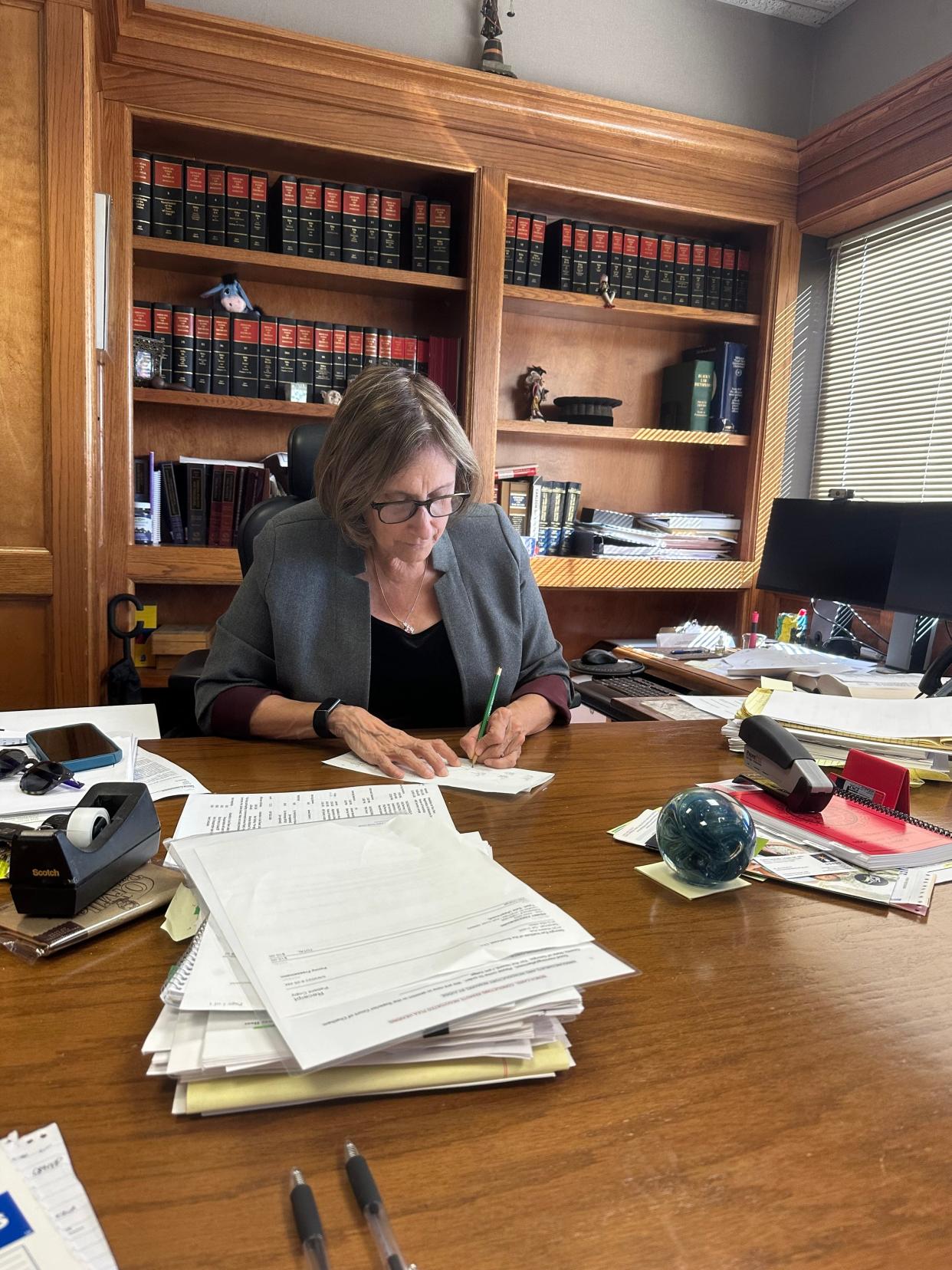What is the process for determining competency to stand trial? Well, it's complicated

What is the process for determining an individual’s competency to stand trial?
First, a defense attorney must request a competency evaluation through the Chatham County Mental Health Court by submitting a referral application for forensic services from the Georgia Department of Behavioral Health and Developmental Disabilities (DBHDD), along with a copy of the indictment or accusation, police report(s), any available medical records, and a written statement explaining the basis for the request, to Chatham County Superior Court Judge Penny Freesemann.
A DBHDD forensic psychologist then gets assigned to the case. That professional is tasked with completing a forensic report, or an “opinion.”
Once DBHDD opines, which can take six months or more, Freesemann provides the defense counsel DBHDD’s opinion. If the defense counsel files a “special plea,” then Freesemann sends the DBHDD opinion to the state and schedules a hearing where she asks if the defendant is incompetent, potentially restorable, or not restorable at all?
Freesemann then issues an order on whether the defendant is competent to stand trial. Competency is determined by multiple factors, including whether the defendant is capable of understanding the nature and object of the proceedings, whether the defendant comprehends his or her own condition in reference to such proceedings, and whether the defendant is capable of rendering to counsel assistance in providing a proper defense.
Freesemann will issue another order on whether the defendant has the mental capacity to distinguish right from wrong in relation to the alleged act, and whether or not the presence of a delusional compulsion overmastered the defendant’s will to resist committing the alleged act.
The answers will determine the course of action.
If a defendant is deemed incompetent to stand trial, the defense attorney and prosecutor can agree to the opinion or either party can request a hearing.
If the court finds the person cannot be restored to competency, the defendant will be civilly committed on an in-patient facility or treated on an out-patient basis. The case will then appear on the Competency Review docket for an annual review. The annual reviews will continue until the defendant/case is no longer under the court’s jurisdiction.
If the forensic report finds the defendant is incompetent to stand trial but has potential for restoration, the court order will request that DBHDD attempt competency restoration. Georgia statute requires DBHDD to make competency restoration attempts for a period of at least 90 days but no longer than 12 months.
The restoration attempts are done in a DBHDD facility, such as Georgia Regional Hospital, if the court finds that the defendant requires in-patient treatment. If there are no beds available, the defendant remains in the county jail, except for the few cases of where the defendant has been placed on bond. Otherwise, the defendant can be treated in an out-patient setting during the restoration period.
After the 90-day to 12-month restoration period, DBHDD conducts another evaluation and provides a report to the court summarizing the doctor’s findings, observations, opinion and recommendation(s). If they defendant is restored to competency, the regular trial schedule resumes.
Competency process under state review
DBHDD Commissioner Kevin Tanner chairs the state’s Behavioral Health Reform and Innovation Commission (BHRIC), which was created pursuant to House Bill 514 during the 2019 Georgia Legislative Session. The BHRIC, which is composed of three superior court judges, two state court judges, two probate court judges, two juvenile court Judges, two defense attorneys, two prosecutors and three forensic experts, has been meeting on an ongoing basis, and is evaluating the entire [competency] process.
Tanner said the BHPIC will issue its full report on the competency process in December.
Tanner noted that the commission found that 64% of the defendants are found to be competent when they're evaluated.
“Obviously, if we can cut down on the number of orders we're receiving, then that will allow us to get through them quicker,” said Tanner. “Unfortunately, there's not a light switch that gets flipped on and off. And there's not a silver bullet answer for any of these problems. But I do anticipate, and my plan is for Georgia to really lead the nation out of this workforce challenge and this workforce crisis. And I think we're well on the way to making that happen.”
This article originally appeared on Savannah Morning News: Georgia state commission to issue report on competency process in December

